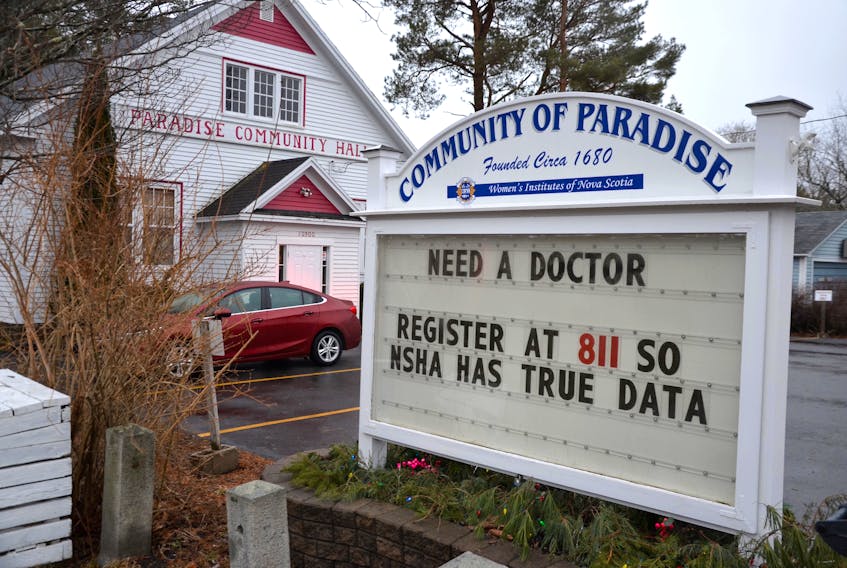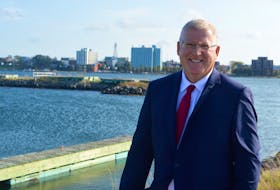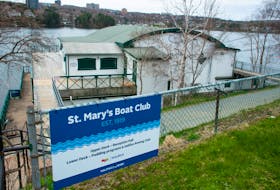PARADISE, N.S. — Two women in Paradise are wondering if life will be as idyllic as the name implies once the only local doctor, in neighbouring Lawrencetown, retires this summer.
Barb Bishop and Heather Spurr don’t know exactly what to do, but they’re not going to do nothing. They think the first step is for area residents to register with the province’s 811 registry that puts people in a database of those without doctors.
They believe this is important not only so people will be signed up for when and if a new doctor comes to the area, but to give Nova Scotia Health Authority accurate numbers.
They’re members of Annapolis County Citizens for Health and in a letter to Premier Stephen McNeil in October, asked him about the registry and the figures on the number of patients without primary healthcare by area.
“These numbers are based on the registry numbers provided by its own, internal mechanism,” they said in the letter. “It seems to assume that every Nova Scotian without a doctor is registered with it. It is very likely that many, if not most, Nova Scotians are completely unaware of the registry. Others have been told that they cannot register until their doctors actually retire.”

Bishop and Spurr say the numbers for the Annapolis Valley are set to jump by 10,000 to 20,000 with the retirements of possibly three doctors who see patients from an area stretching from Bridgetown in Annapolis County, to Middleton, and into Kingston in Kings County.
McNeil
“We started the 811 registry to be able to identify with real data, real facts where the issues were in communities across the province,” said McNeil in an interview. He’s also MLA for Annapolis. “We know that in our area there are a number of doctors just retired, some getting ready to retire, and potentially others who are not that far away retirement, all of whom are carrying fairly large practices.”
He said the province is continuing to do ongoing recruiting to provide primary health care to citizens in the region.
“The first step would be to register at 811,” said McNeil. “Second step is to continue to be part of the solution. How do we work together as communities so that when we go out and recruit and bring people here that we provide them and show them a good package? We’ve had good success. Dr. (Simon) Bonnington, for example, in Annapolis Royal, did some recruiting with the province in the United Kingdom. We’ve had success out of that provincially.”
McNeil said there has been some success in other areas of the province being able to tap physicians to help with recruiting.
“If we get a doctor who can talk to a another doctor they can kind of explain to them their experience in rural communities. That’s had some success,” he said.
Nurse Practitioners
“We’re also seeing desire for nurse practitioners and family practice nurses to help build a collaborative approach to delivering health care,” McNeil said. “We’ve seen some hires in our area. And we need to look at the physical collaborative infrastructure to make sure it’s modern, that we can use it not only to attract primary care givers but also use it as a training and teaching model so that residents will be able to come out and work in a collaborative team approach. Work with doctors. Where we would be able to get medical students out who are still ion medical school for part of their practicum under the tutelage of physicians here.”
Annapolis County Warden Timothy Habinski has also been worried about a doctor shortage.
“I actually had a meeting with the minister of health in order to talk about doctor recruitment,” said Habinski. Who was at that meeting as an executive member of the Nova Scotia Federation of Municipalities.
“In the course of that discussion we talked a lot about the efforts that other municipalities have made towards doctor recruitment and what has worked and what hasn’t worked,” Habinski said. “I’m the chair for the rural caucus for NSFM now, and at our spring workshop our rural caucus meeting is going to be on this topic. This is one of the things we’re discussing. We’re going to be collecting information from rural municipalities and what it is they’ve done to this point, what has worked, what hasn’t worked.”
Welcoming Communities
Habinski agreed with the Paradise group that registering for a doctor is essential.
“We can’t have a really clear picture of the need if people aren’t (registered),” he said, “and I think there are a lot of people who are currently patients of Dr. (Grant) Goodine in Lawrencetown who should be getting registered on that list in advance. If they leave it until he’s actually gone, then you’re at the bottom of the list. We have a better understanding of the shape of the issue if we’re all in the database. I think people should be registering.”
And Habinski said municipalities that engaged in welcoming programs have had fairly good success. He said communities need to take steps to welcome the doctor when they’re brought in by the recruitment services.
“Have somebody meet them at the airport. When they come into the community and they have an opportunity to review the facilities also have somebody with the municipality or someone from a community group give them a tour of the area,” he said. “Once they’re considering it, and once they’re here even on an interim basis you have a concerted effort to make sure their family gets integrated into the life of the community – they get invited to all the breakfast, they get invited to all the ham suppers. What seems to attract doctors to rural communities is the notion of community, and that’s what we have to pitch.”
Related stories:









